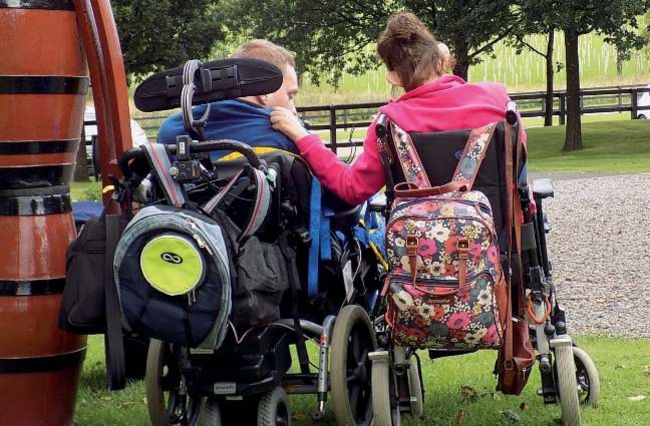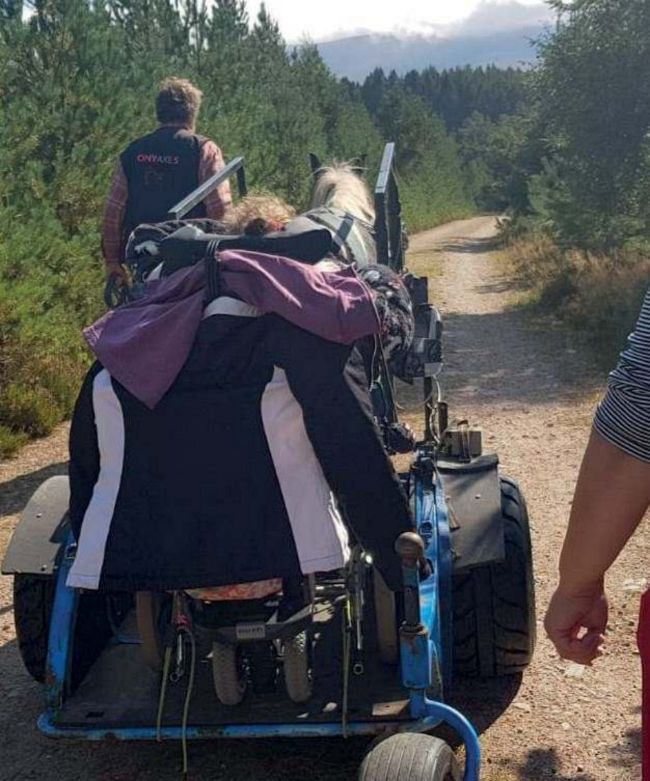Celebrating 150 years of care
In a new series celebrating the 150th anniversary of social care in the Church, Thomas Baldwin looks at the work of The Bungalow in Stonehaven.
HOW do you provide for teenagers with complex needs, when children’s services are no longer appropriate for them but nothing exists locally to cater for them as adults?
In the case of the manager of a home for disabled children in Stonehaven, the answer was simply to build a new facility. And the result, a classic case of necessity being the mother of invention, is now one of CrossReach’s more notable success stories.
The Bungalow was constructed around 1995 in the grounds of Keith Lodge, which at the time was a residential and respite home for children with learning disabilities and complex needs operated by what was then called the Church of Scotland’s Board of Social Responsibility.
It was built to provide accommodation for four people with profound and multiple learning disabilities, who had been cared for at Keith Lodge since they were infants, but couldn’t legally stay as they had reached or were approaching the age of 18.
The project was the inspiration of the manager at the time, Betty Taylor, who had tried unsuccessfully to find suitable alternative accommodation for the service users locally.
When complete, it provided the four individuals with a new home, each with their own bedroom with double aspect views and a tracking hoist for moving and handling. There were also specially adapted bathrooms – one with a jacuzzi – and bright and cheerful communal areas as well as an attractive and accessible garden area.
Keith Lodge was closed in 2006, but The Bungalow survived to become a standalone service. In 2012, a legacy from a Dr Dixon of Dundee enabled the house to be upgraded and extended, so it could look after a fifth service user.
Since then, The Bungalow has established its status as a specialist residential Learning Disability service within CrossReach. The service users all have profound and multiple learning disabilities and complex health needs, are wheelchair users and have non-verbal communication. Their placements are funded by the local authority.
The service follows a social model of care and concentrates on making a positive diff erence to the lives of the five individuals who live there as well as to their extended families. It is configured around what can be accessed locally, so the service users can have the same opportunities as other people when their needs have gone beyond the remit of their family carers.

Activities at The Bungalow
Life at The Bungalow is never dull, and over the past few years the service has made strenuous eff orts to promote the inclusion of the service users in the local community, including successfully organising and delivering a range of small and larger fundraising events while significantly involving the community in its work. In particular, the service management team has organised two large fundraising events – in 2015 and 2017, with a third to follow in November this year, based on the Strictly Come Dancing format.

Activities at The Bungalow
This fundraising has helped the service to provide an annual holiday for all five service users to Badaguish Outdoor Centre in Aviemore, where they can be supported to participate in activities that are innovative and challenging for individuals with such profound disabilities, such as orienteering and canoeing.
This holiday has provided what service manager Kathleen Keith describes as a ‘heartfelt and moving’ memory: “We made contact with an outdoor activity provider, Active Spirit, who enabled us to get our service users out of their wheelchairs and onto canoes for the first time. The emotion as we set sail onto Loch Morlich, with the image of the ‘abandoned’ wheelchairs on the beach and the freedom it gave our special young people, is truly engrained on our hearts.” Tracey and Ian Pullen of Active Spirit say that the attitude of The Bungalow staff was crucial to enabling the service users to take part in such activities: “Rafted canoeing is probably the best activity for everyone as the wheelchairs are left behind, and we are all on the water together chatting and having fun.
“We could not off er these activities at all if it were not for the willingness of the carers to do whatever needs to be done to allow the group to participate. The CrossReach carers in particular really want to give folk the opportunity to have as many diff erent experiences as possible, no matter what they have to do to enable this.”
That is not the only time that the dedication of the staff has been noted. Consistently excellent Care Inspectorate grades over the past few years have been accompanied by multiple successes in the Scottish Care Awards. A family member of a former resident comments: “The Bungalow staff considers each resident very much as an individual who has their own character, interests and social needs and their activities within and outside the home are developed to fulfil these.”
Kathleen says: “The staff team want the service to be really good and deserving of recognition in their work within the specialist field of supporting individuals with profound and multiple learning disabilities and complex health needs. “In 2013 we won the Scottish Care – National Care Home Award for Specialist Adult Care and in 2018 we won the Scottish Care – National Care Home Award for Specialist Service/Unit Award.
“The management team felt privileged to represent their colleagues in the service and put CrossReach in the spotlight at the award ceremonies and were pleased and honoured that the work we do in Christ’s name is recognised for making a positive impact to individuals with profound and multiple learning disabilities.
“The CrossReach Ethos Statement underpins the way we approach the work we deliver at The Bungalow, understanding as receivers ourselves of God’s unconditional love and grace, we aspire to work with our vulnerable service user group in a spirit of humility and compassion, valuing each one for their individual worth and ensuring they have the opportunity to lead full and meaningful lives.”